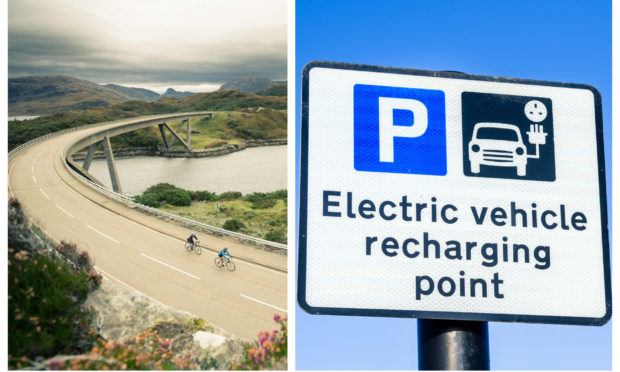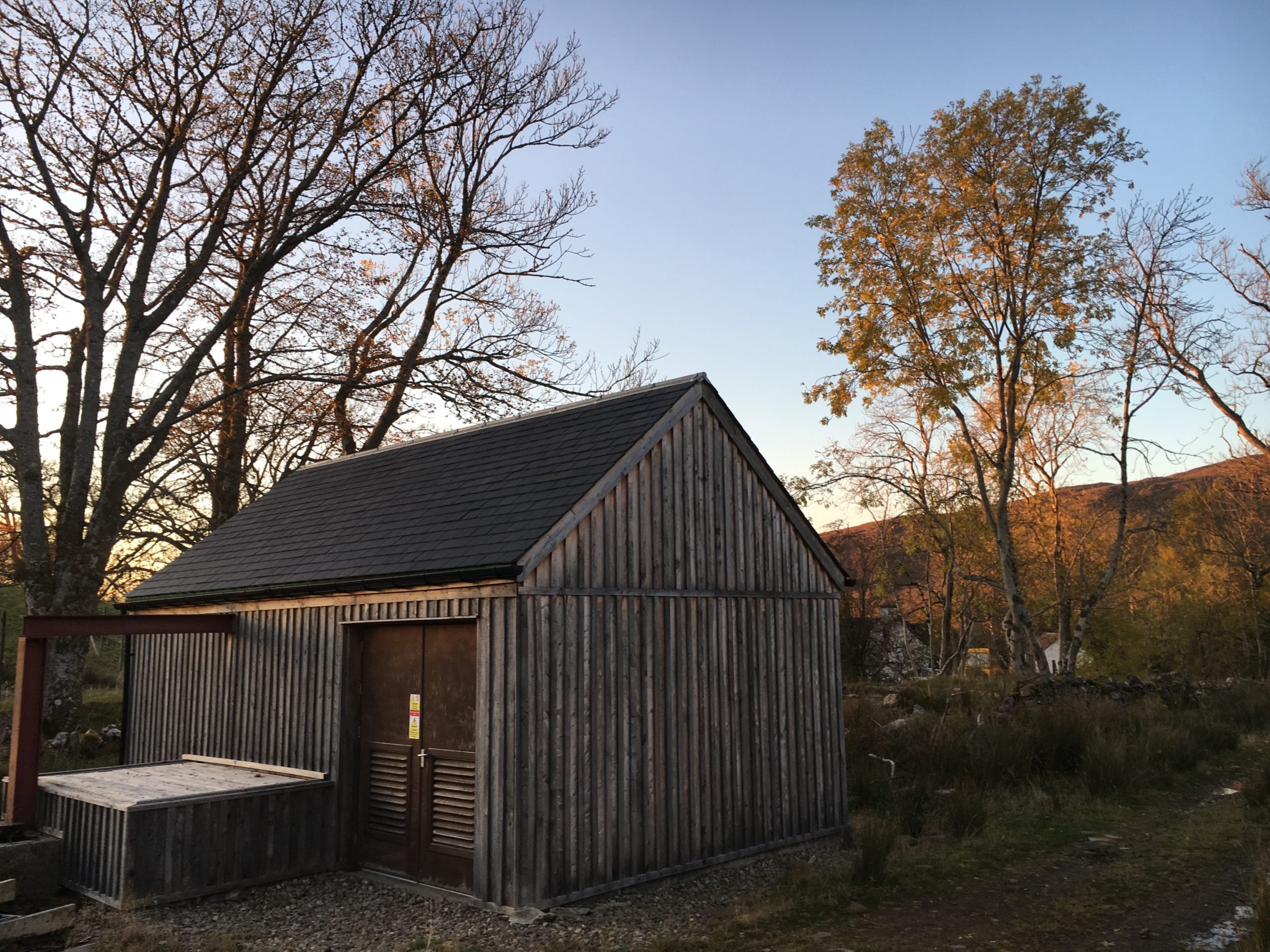Tourists using the NC500 could soon be able to charge up their electric vehicles – using power generated by a community’s hydro scheme.
Residents of Applecross have come up with the idea to promote greener travel on the increasingly popular tourist trail.
The community’s £780,000 hydro scheme creates clean, low-carbon electricity from the Allt Breugach burn, flowing from hills behind Shore Street into Applecross Bay.
Now Apple Juice (Applecross) Ltd has been formed to investigate taking some of the excess power and using it to power a rapid charging point for electric vehicles.
Surplus income from the scheme will be filtered into Applecross Community Company to be spent on projects that will benefit locals.
Roslyn Clarke, local development officer for Applecross Community Company and a director of Apple Juice, said: “There are no electric charging points away from the main routes of the NC500 and the nearest one to us here is in Torridon.
“We want to encourage more electric motors in order to lower our carbon footprint.
“The idea is to utilise excess energy from our community-owned hydro station for the better.
“We currently export 50KW of energy but only use 40KW locally, so we are exploring alternative ways in which to use it.
“There are a lot of tourists coming to Applecross which has been great but we need the infrastructure to support that.”
Apple Juice is now seeking a contractor to undertake a feasibility study and detailed design for the installation of a fast or rapid electric vehicle charge point, alongside the associated infrastructure and battery storage.
Connection to the national grid will also have to be explored as part of the study.
The £8,000 contract is currently out for tender with the deadline set for 5pm next Friday.
The NC500 has proven to be a huge success since its launch, bringing in millions for the local economy.
A study undertaken by the Moffat Centre for Tourism at Glasgow Caledonian University – fronted by Professor John Lennon – estimated the NC500 boosted the local economy by £22.9 million over the past 12 months.
The report, which was commissioned by North Highland Initiative and Highlands and Islands Enterprise (HIE), also found the route has created 180 full-time equivalent jobs in the same period.
However, despite its success calls have been made by those living along the route for assistance in upgrading infrastructure to deal with the influx of visitors.

